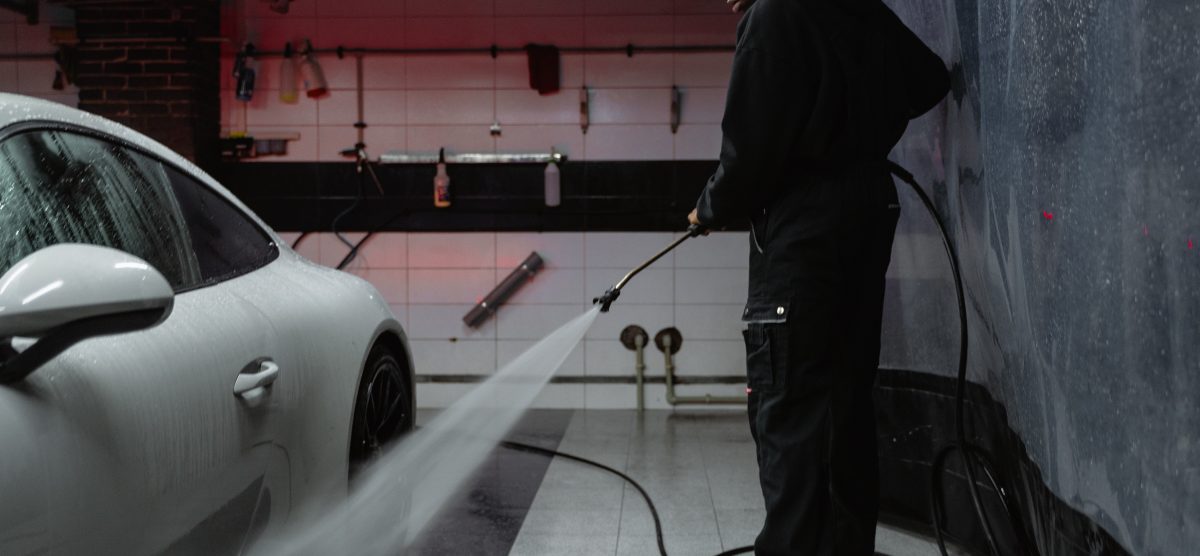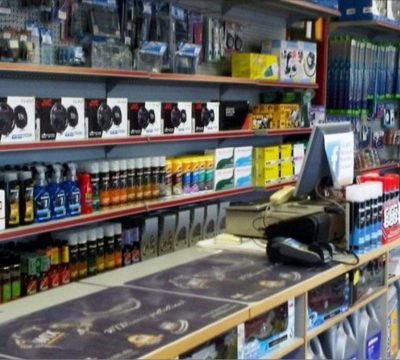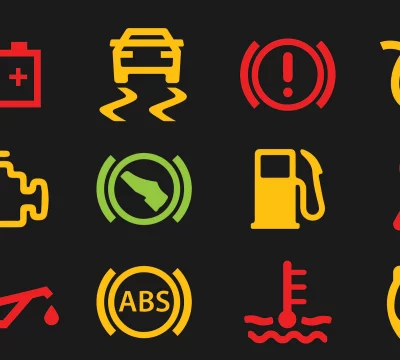The Importance of Regular Car Servicing in Nigeria

In today’s fast-paced world, owning a car has become more than just a luxury; it has become a necessity. Whether you use your car for commuting, running errands, or embarking on exciting road trips, ensuring its regular servicing is crucial for maintaining its performance, safety, and longevity.
In Nigeria, a country known for its bustling city streets and challenging road conditions, regular car servicing takes on even greater significance. Not only does it help keep your vehicle in top shape, but it also plays a vital role in ensuring your safety and the safety of others on the road. From oil changes to brake inspections, tire rotations to engine tune-ups, each aspect of regular car servicing contributes to the overall health of your vehicle.
So, if you want to avoid costly repairs, breakdowns, and potential accidents, investing in regular car servicing should be at the top of your priority list. In this blog post, we will highlight:
- The benefits of regular car servicing,
- Common car servicing misconceptions,
- Signs that your car needs servicing,
- How to find a reliable car servicing centre in Nigeria,
- What to expect during a car servicing appointment,
- DIY car servicing vs. professional servicing, and
- Car servicing checklist for Nigerian drivers.
Benefits of Regular Car Servicing
Regular car servicing offers a multitude of benefits that go beyond simply maintaining your vehicle’s performance. Here are some key advantages of staying on top of your car’s maintenance schedule:
- Enhanced Safety
Regular car servicing plays a crucial role in ensuring your safety on the road. By regularly inspecting and maintaining vital components such as brakes, tires, and suspension, you reduce the risk of accidents caused by mechanical failures. Additionally, servicing helps identify and address potential safety hazards, such as worn-out seat belts or faulty airbags, providing you with peace of mind during your travels.
- Improved Performance and Fuel Efficiency
A well-maintained car performs better and offers better fuel efficiency. Regular servicing includes tasks such as engine tune-ups, air filter replacements, and fuel system cleaning, which optimize your car’s performance and ensure it operates at its best. This, in turn, results in better fuel economy, saving you money at the pump.
- Longevity of Your Vehicle
Investing in regular car servicing can significantly extend the lifespan of your vehicle. By addressing minor issues promptly and keeping all systems in top shape, you can avoid major breakdowns and premature wear and tear. A well-maintained car is more likely to reach high mileage with fewer problems and can serve you reliably for years to come.
- Maintaining Resale Value
If you plan to sell or trade in your car in the future, regular car servicing is essential for maintaining its resale value. Potential buyers are more likely to pay a premium for a well-maintained vehicle that comes with a documented service history. Regular servicing shows that you have taken good care of your car, instilling confidence in potential buyers and increasing its value.
Common Car Servicing Misconceptions
Despite the clear benefits of regular car servicing, some common misconceptions prevent people from prioritizing this essential maintenance routine. Let’s debunk a few of these misconceptions and shed light on why regular car servicing is necessary:
- “My Car Doesn’t Need Servicing Until Something Breaks”
Many car owners believe that servicing is only necessary when something goes wrong with their vehicle. However, waiting for a breakdown or major issue to occur can be both dangerous and costly. Regular servicing helps detect and address minor issues before they become major problems, saving you from unexpected breakdowns and expensive repairs.
- “Servicing at the Dealership is Expensive”
While it is true that dealership servicing can be more expensive than independent garages, it often comes with added benefits. Dealerships have access to manufacturer-specific training, tools, and parts, ensuring that your car is serviced according to the manufacturer’s standards. Additionally, dealership servicing often includes warranty coverage and can help maintain your car’s resale value.
- “I Can Service My Car Myself”
While there are some maintenance tasks that you can do yourself, such as checking tire pressure or topping up fluids, full car servicing requires professional expertise and specialized equipment. Trained technicians have the knowledge and experience to identify potential issues that may go unnoticed by an untrained eye. Additionally, they can accurately diagnose and fix problems, ensuring that your car receives the care it needs.
Signs That Your Car Needs Servicing
Regular car servicing is essential, but how do you know when it’s time to take your car in for maintenance? Here are some common signs that indicate your car needs servicing:
- Warning Lights
If any warning lights appear on your dashboard, it is crucial to have them checked as soon as possible. Ignoring warning lights can lead to further damage or even safety hazards. Whether it’s a check engine light, ABS light, or any other warning indicator, it’s best to consult a professional to diagnose and address the issue.
- Unusual Noises or Vibrations
Unusual noises or vibrations while driving can indicate underlying problems with your car. If you notice squeaking brakes, grinding sounds, rattling noises, or vibrations that weren’t present before, it’s a good idea to have your car inspected. These symptoms can indicate issues with the suspension, exhaust system, or other components that require attention.
- Changes in Performance
If you notice a decrease in your car’s performance, such as reduced acceleration, sluggishness, or difficulty starting, it could be a sign that your car needs servicing. Performance issues can be caused by various factors, including worn-out spark plugs, a clogged air filter, or fuel system problems. A professional inspection can help identify and address the root cause.
- Fluid Leaks
Leaking fluids underneath your car can indicate a problem that needs immediate attention. Whether it’s an oil leak, coolant leak, or brake fluid leak, it’s essential to have the source identified and repaired promptly. Ignoring fluid leaks can lead to further damage and potential breakdowns.
- Unusual Smells
Strange odours coming from your car can be a sign of underlying issues. For example, a burning smell could indicate an overheating engine or a problem with the electrical system. A pungent smell could suggest a coolant leak. It’s crucial to have these smells investigated to prevent further damage or potential breakdowns.
Finding a Reliable Car Servicing Center in Nigeria
When it comes to regular car servicing, finding a reliable and trustworthy car servicing centre is essential. Here are some tips to help you find the right place to take care of your car:
- Ask for Recommendations
Reach out to friends, family, or colleagues who own cars and ask for recommendations. Personal experiences and word-of-mouth referrals can provide valuable insights into the quality of service offered by different car servicing centres. Consider asking about their experience, pricing, and overall satisfaction with the service received.
- Read Online Reviews
Check online platforms such as Google, Yelp, or social media for customer reviews of car servicing centres in your area. Pay attention to both positive and negative reviews to get a comprehensive understanding of the centre’s strengths and weaknesses. Look for recurring themes or specific mentions of exceptional service or areas of improvement.
- Check Certifications and Credentials
Ensure that the car servicing centre you choose has the necessary certifications and credentials. Look for affiliations with reputable automotive organizations or manufacturers, as these indicate a commitment to quality and adherence to industry standards. Technicians should also have relevant training and certifications to work on your car’s specific make and model.
- Visit the Center
Before making a final decision, visit the car servicing centre in person. Observe the cleanliness and organization of the facility, as well as the professionalism of the staff. A well-maintained and organized centre is more likely to prioritize quality and attention to detail. You can also use this opportunity to ask any questions you may have regarding their services, pricing, or warranty coverage.
- Compare Prices and Services
While cost should not be the sole determining factor, it is essential to compare prices and services offered by different car servicing centres. Beware of extremely low prices that seem too good to be true, as they may indicate subpar service or the use of low-quality parts. Look for centres that offer transparent pricing and detailed explanations of the services included.
What to Expect During a Car Servicing Appointment
Once you have selected a reliable car servicing centre, it’s essential to know what to expect during a car servicing appointment. While the specific procedures may vary depending on your car’s make and model, here is a general overview of what typically happens during a car servicing appointment:
- Initial Inspection
A trained technician will conduct an initial inspection of your car to identify any visible issues or areas that require attention. They may use diagnostic tools or perform visual inspections to assess the overall condition of your vehicle. This step helps determine the specific services and repairs needed.
- Fluid Checks and Changes
Fluid checks and changes are an integral part of car servicing. The technician will inspect and top up fluids such as engine oil, transmission fluid, coolant, brake fluid, and power steering fluid as needed. They may also recommend fluid changes based on the manufacturer’s recommendations or the condition of the fluids.
- Filter Replacements
Filters, such as the engine air filter and cabin air filter, play a crucial role in maintaining the performance and air quality of your car. During a car servicing appointment, these filters will be inspected and replaced if necessary. Clean filters ensure efficient engine performance and prevent the circulation of dust and pollutants in the cabin.
- Tire Inspection and Rotation
Tires are vital for your safety and the overall performance of your vehicle. The technician will inspect the tires for signs of wear, damage, or improper inflation. They may recommend tire rotations to ensure even wear and prolong tire life. Additionally, they may check the wheel alignment and recommend adjustments if necessary.
- Brake Inspection and Maintenance
The braking system is one of the most critical safety components of your car. During a car servicing appointment, the technician will inspect the brake pads, rotors, and callipers for signs of wear or damage. They may recommend brake pad replacements or other maintenance tasks to ensure optimal braking performance.
- Engine Tune-Up
An engine tune-up is a comprehensive maintenance procedure that includes inspecting and adjusting various engine components to optimize performance. During a car servicing appointment, the technician may perform tasks such as spark plug replacements, fuel system cleaning, and throttle body inspection. These steps help improve fuel efficiency and overall engine performance.
- Battery Inspection and Testing
The car battery is responsible for powering various electrical components. The technician will inspect the battery for signs of corrosion, leaks, or other issues. They may also perform a battery test to check its overall health and determine if a replacement is necessary.
- Visual Inspection of Other Components
In addition to the specific maintenance tasks mentioned above, a car servicing appointment includes a visual inspection of other components such as belts, hoses, lights, and wipers. The technician will check for signs of wear, damage, or malfunction and recommend replacements or repairs as needed.
DIY Car Servicing vs. Professional Servicing
While there are some maintenance tasks that you can do yourself, such as checking tire pressure or topping up fluids, full car servicing is best left to professionals. Here are some reasons why professional car servicing is recommended:
- Expertise and Experience
Professional technicians have the expertise and experience to diagnose and address various car issues accurately. They undergo specialized training and stay updated with the latest automotive technologies and repair techniques. This ensures that your car receives the care it needs and that potential problems are identified early on.
- Access to Specialized Tools and Equipment
Car servicing centres have access to specialized tools and equipment that are necessary for proper maintenance and repairs. From diagnostic tools to specialized wrenches, these tools allow technicians to perform tasks efficiently and accurately. DIY car servicing may not have the same level of precision and can lead to further damage or incomplete repairs.
- Warranty Coverage
If your car is still under warranty, getting it serviced professionally is often a requirement to maintain warranty coverage. Manufacturers often have specific service intervals and requirements that must be followed to keep the warranty valid. Professional car servicing centres can provide the necessary documentation and ensure that your car meets the manufacturer’s standards.
- Proper Disposal of Waste Materials
Car servicing often involves the disposal of hazardous waste materials, such as used engine oil, coolant, or brake fluid. Professional car servicing centres have proper waste management systems in place to ensure that these materials are disposed of safely and in an environmentally friendly manner. DIY car servicing may not have the same level of care when it comes to waste disposal.
Car Servicing Checklist for Nigerian Drivers
To help Nigerian drivers stay on top of their car’s maintenance, here is a comprehensive car servicing checklist:
- Regular Oil Change: Check your vehicle’s owner’s manual for the recommended oil change interval, usually every 5,000 to 7,500 kilometres or as per the manufacturer’s recommendation. Regularly changing the oil helps keep the engine running smoothly.
- Fluid Levels: Check and top up the various fluid levels in your vehicle, including engine coolant, brake fluid, power steering fluid, and windshield washer fluid. Low fluid levels can affect the performance and safety of your vehicle.
- Battery Maintenance: Inspect the battery terminals for corrosion and clean them if necessary. Ensure that the battery is securely mounted and has sufficient charge. In hot Nigerian climates, batteries tend to deteriorate faster, so regular maintenance is crucial.
- Tire Inspection: Regularly check the tire pressure and ensure they are properly inflated according to the manufacturer’s recommendations. Inspect the tires for signs of wear and tear and replace them if necessary. Rotate the tires as per the recommended interval to ensure even wear.
- Brakes: Test the brakes periodically to ensure they are functioning properly. If you notice any squeaking or grinding noises, or if the brake pedal feels spongy, it may be time to have them inspected and serviced by a professional.
- Air Filter: Clean or replace the air filter regularly. A dirty air filter can reduce engine performance and fuel efficiency.
- Lights and Signals: Check that all exterior lights, including headlights, taillights, brake lights, and turn signals, are working correctly. Replace any bulbs that have burned out.
- Wipers and Windshield: Inspect the wiper blades for signs of wear and replace them if necessary. Ensure that the windshield is clean and free from cracks or chips that could impair visibility.
- Belts and Hoses: Inspect the belts and hoses under the hood for any signs of cracking, fraying, or leakage. Damaged belts or hoses should be replaced promptly to avoid breakdowns.
- Air Conditioning: Test the air conditioning system to ensure it is functioning properly, especially during hot Nigerian weather. If the air conditioning is not cooling effectively, have it checked by a professional.
- Suspension and Steering: Pay attention to any unusual noises or vibrations while driving, as these may indicate issues with the suspension or steering components. Have them inspected and repaired if necessary.
12. Exhaust System: Check for any leaks or unusual noises from the exhaust system. A properly functioning exhaust system is important for the vehicle’s performance and safety.
The Bottom Line
In a country like Nigeria, where road conditions and extreme weather can pose unique challenges, prioritizing car servicing becomes even more crucial. By adhering to a consistent maintenance schedule, drivers can enjoy several benefits that contribute to the overall safety, performance, and longevity of their vehicles.
Beyond the tangible benefits, regular car servicing promotes peace of mind for Nigerian drivers. Knowing that your vehicle is in good condition reduces the risk of unexpected breakdowns or accidents, allowing you to drive confidently and with a heightened sense of security.




